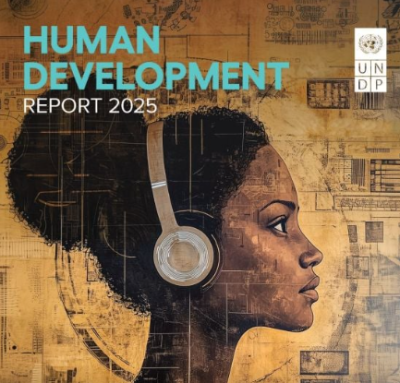
A Coruña, May 23, 2025 –. The Human Development Report, produced annually by the United Nations Development Programme (UNDP), focuses this year on artificial intelligence and its potential to help transform economies and societies. It also considers what decisions and measures can be taken to help all countries have the opportunity to thrive in a world with AI.
Regarding the Human Development Index (HDI) itself, the context of general stagnation since the Covid-19 pandemic is highlighted; although Spain has improved its score during this period, rising from an HDI of 0.901 in 2020 to 0.918. Moreover, it is one of the countries with the highest penetration of AI skills, ranking 12th globally, and it is ahead of other nearby countries such as France in terms of attracting AI talent.
The report presents the results of one of the largest public opinion surveys on AI conducted worldwide in the past three years: more than 21,000 people from 21 countries and 36 languages were surveyed. Some relevant data are detailed below:
In relation to the labor market, the advancement of AI generates fears of massive job losses, according to the report. Nevertheless, the scenario is optimistic, according to the survey data:
While it is undeniable that there will be changes in labor demand, the report states that delegating tasks to machines can free people to spend more time on other aspects of life, such as creative work, patient care, education, or learning and developing new skills; tasks in which machines are deficient and the human component is inherently valuable.
In addition, AI can improve industrial capacity and lead to greater diversification of value chains, as well as better markets for self-employed workers. It can lead to new knowledge and skills for the benefit of all people, from farmers to small business owners. And it will create new roles for humans in ways we cannot yet imagine.
Within the framework of the Artificial intelligence act and the lines of work of the Spanish Agency for the Supervision of Artificial Intelligence (AESIA), special mention deserves the approach advocated by the report: a human-centered AI. To this end, it identifies three areas of action:
Together, these three areas invite policymakers to make decisions, to decide how to use AI to create opportunities to address climate change, conflicts, mass migration, and the rapid rise in inequalities.
Finally, the report also invites reflection by stating that risks are just one part of the issue; artificial intelligence offers many more possibilities for the common good, and harnessing them to meet people's expectations for a better life depends on more than algorithms: it is a matter of choices.
The full report can be consulted at the following link:

In our News section you will find information about the most relevant events, talks and conferences in the field of artificial intelligence.
For the safe and responsible use of AI in toys,...

The appointment aims to promote a new phase for the...
For safe and responsible use of AI in toys, shopping...
We use third-party cookies for analytical purposes, in summary we only use Google Analytics cookies to analyse our traffic.